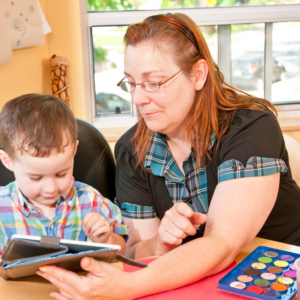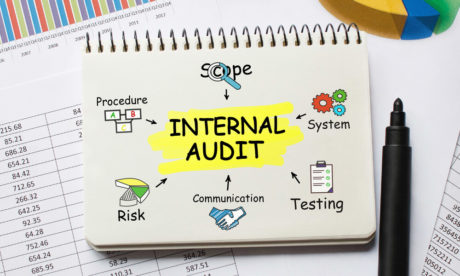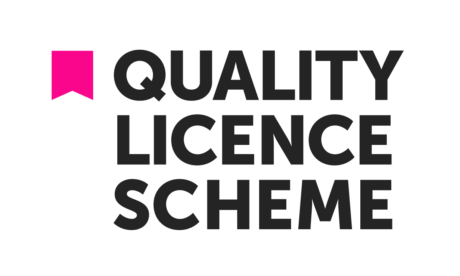Overview
The Care Certificate Program offers in-depth training on a variety of topics related to care, giving you the knowledge and skills you need to succeed. This program is accessible and welcomes individuals of all backgrounds and knowledge levels. The curriculum is relevant and current, with engaging and successful instructional techniques.
If you are looking for a career in care, the Care Certificate Course is a great place to start. This course will provide you with the skills and knowledge you need to succeed in this rewarding field. You will also learn how to make a positive impact on the lives of others.
The Care Certificate Course is not a substitute for official training or certification. But, it is an excellent way to gain the foundational knowledge and skills you need to pursue a career in care.
Learning Outcomes
- Instant access to verified and reliable information
- Participation in inventive and interactive training exercises
- Quick assessment and guidance for all subjects
- Freedom to study in any location and at a pace that suits you
- Expert support from dedicated tutors committed to online learning
Certification
Upon finishing the course, you have the option to purchase a certificate of achievement to showcase your success. The PDF version costs £3.99, the paper version is £7.99, or you can get both for £10. International students will incur an extra £10 delivery fee.
Who Is This Course For?
- Aspiring healthcare professionals keen on foundational knowledge.
- Current care workers aim to refresh or expand their skills.
- Individuals with a fervent desire to serve and care for others.
- Students of healthcare, nursing, or medicine seeking a complementary skill.
- Anyone exploring a fulfilling career in the healthcare sector.
Your Path to Success
After completing the training in The Care Certificate Course, you will be able to prove yourself in this sector. This can give you an advantage in career progression, job applications, and personal mastery in this area.
Course Curriculum
| Standard 01: Understand Your Role | |||
| The Duties and Responsibilities of a Care Worker | 00:14:00 | ||
| Employment Rights and Responsibilities | 00:16:00 | ||
| Aims, objectives and values of the service | 00:14:00 | ||
| Responsibilities to the Individuals | 00:13:00 | ||
| Different Working Relationships in Care Settings | 00:14:00 | ||
| The Importance of Partnership Working | 00:16:00 | ||
| Standard 02: Your personal development | |||
| Identify Sources of Support for Own Learning and Development | 00:16:00 | ||
| Skills That Healthcare Professionals Need | 00:17:00 | ||
| Standard 03: Duty of Care | |||
| What Is Duty of Care | 00:16:00 | ||
| Dilemmas That may Arise Between the Duty of Care and an Individual’s Right | 00:15:00 | ||
| Procedures for Responding to Complaints | 00:15:00 | ||
| Recognising Adverse Events, Incidents, Errors and Near Misses | 00:15:00 | ||
| Factors and Difficult Situations That may Cause Confrontation | 00:13:00 | ||
| Standard 04: Equality and Diversity | |||
| Understanding Diversity | 00:14:00 | ||
| Discrimination that can be Deliberately or Unintentional | 00:16:00 | ||
| legislation and Codes of Practice Relating to Equality | 00:15:00 | ||
| Respecting individuals’ beliefs, culture, values and preferences | 00:14:00 | ||
| Sources of Information for Diversity, Equality, and Inclusion | 00:15:00 | ||
| Standard 05: Work in a Person Centred Way | |||
| Putting Person-Centred Values into Practice | 00:18:00 | ||
| The Importance of Finding out the History, Preferences, Wishes and Needs | 00:15:00 | ||
| Environmental Factors that may cause Discomfort or Distress | 00:17:00 | ||
| Raising concerns directly with the individual concerned | 00:17:00 | ||
| Caregiving is more than just monitoring medicines and driving to doctor | 00:18:00 | ||
| Ensuring the comfort of individuals where they have restricted movement | 00:18:00 | ||
| Promoting person centred values | 00:14:00 | ||
| Recognising the signs of pain or discomfort | 00:16:00 | ||
| Standard 06: Communication | |||
| Different Ways that People Communicate | 00:12:00 | ||
| Why it is important to observe and be receptive to an individual | 00:12:00 | ||
| Establishing an Individual’s Communication and Language Needs, Wishe | 00:14:00 | ||
| Barriers to Effective Communication | 00:15:00 | ||
| How to Check whether the Health Care Support Worker and Adult Social Care | 00:13:00 | ||
| What Is Confidentiality | 00:13:00 | ||
| The Use of Appropriate Verbal and Non-Verbal Communication | 00:16:00 | ||
| Communication Aids | 00:16:00 | ||
| Standard 07: Privacy and dignity | |||
| What is meant by privacy and dignity | 00:15:00 | ||
| Maintaining the Privacy of the Individual | 00:14:00 | ||
| Ways of Helping Individuals to Make Informed Choices | 00:14:00 | ||
| How Valuing People Contributes to Active Participation | 00:12:00 | ||
| Supporting the Active Participation of Individuals in Their Care | 00:16:00 | ||
| Standard 08: Fluids and nutrition | |||
| The Importance of Food Safety, Including Hygiene, in the Preparation and Handling of Food | 00:16:00 | ||
| Ensuring That Drinks Are Within Reach of Those That Have Restorations on Their Movement | 00:15:00 | ||
| Ensuring That Any Nutritional Products Are Within Reach of Those That Have Restrictions on Their Movement | 00:14:00 | ||
| Standard 09: Mental Health, Dementia and Learning Disabilities | |||
| How Someone May Feel if They Have Mental Health Conditions | 00:17:00 | ||
| How Conditions Influence a Person | 00:17:00 | ||
| How Positive Attitudes Towards Those With Mental Health Conditions | 00:16:00 | ||
| Adjustments which may be Necessary in Care Delivery | 00:16:00 | ||
| Importance of Early Detection of Mental Health Needs | 00:19:00 | ||
| Requirements of Legislation and Policies | 00:15:00 | ||
| Effect of Listed Legislation and Policies | 00:18:00 | ||
| Capacity | 00:17:00 | ||
| Standard 10: Safeguarding Adults | |||
| Safeguarding Adults | 00:17:00 | ||
| Types of Abuse | 00:15:00 | ||
| Defining Harm | 00:16:00 | ||
| Indicators of Abuse | 00:17:00 | ||
| Factors Which have Featured in Adult Abuse and Neglect | 00:14:00 | ||
| How Care Environments can Promote and Undermine People’s Dignity and Rights | 00:18:00 | ||
| Reducing the Likelihood of Abuse with Risk Enablement and Management | 00:19:00 | ||
| Standard 11: Safeguarding Children | |||
| Safeguarding Children at Level 1 | 00:11:00 | ||
| Actions to Take If a Child, Young Person (Met in Any Circumstances) Is Suspected to Be Abused | 00:14:00 | ||
| Appropriate Actions to take When Abuse is Suspected | 00:15:00 | ||
| Legislation, Local and National Policies and Procedures Related to Safeguarding | 00:15:00 | ||
| The Importance of Sharing Information with the Relevant Agencies | 00:11:00 | ||
| Standard 12: Basic life support | |||
| Basic Life Support (BLS) | 00:14:00 | ||
| Standard 13: Health and Safety | |||
| Legislation Relating to General Health and Safety in a Health or Social Care | 00:16:00 | ||
| Health and Safety Policies and Procedures | 00:18:00 | ||
| How to Access Additional Support and Information Relating to Health and Safety | 00:15:00 | ||
| The Importance of Risk Assessment for Health and Safety Standards | 00:16:00 | ||
| Legislation Relating to Moving and Assisting | 00:17:00 | ||
| Procedures to Follow When Accidents or Illness Occur | 00:17:00 | ||
| Agreed Ways of Working in Relation to Medication | 00:15:00 | ||
| Hazardous Substances in the Workplace | 00:17:00 | ||
| Prevent Fires from Starting or Spreading | 00:19:00 | ||
| Protecting Security | 00:18:00 | ||
| Identifying Common Signs of Stress in a Work Setting | 00:18:00 | ||
| Standard 14: Handling information | |||
| Agreed Ways of Working regarding the Recording, | 00:15:00 | ||
| Importance to Have Secure Systems for Recording, Storing and Sharing Information | 00:13:00 | ||
| How to Keep Records That Are Up to Date, Complete, Accurate and Legible | 00:13:00 | ||
| Standard 15: Infection control | |||
| The Main Ways an Infection Can Get into the Body | 00:18:00 | ||
| Effective Hand Hygiene | 00:17:00 | ||
| Risk to the individuals | 00:15:00 | ||
| Common Types of Personal Protective Clothing, Equipment and Procedures | 00:16:00 | ||


 Diploma in Sketch Drawing
Diploma in Sketch Drawing  PDF Certificate ( Special Deal for You - 70% OFF)
PDF Certificate ( Special Deal for You - 70% OFF)  Early Years Teacher & Child Care Course
Early Years Teacher & Child Care Course  Large Goods Vehicle (LGV)
Large Goods Vehicle (LGV) 








